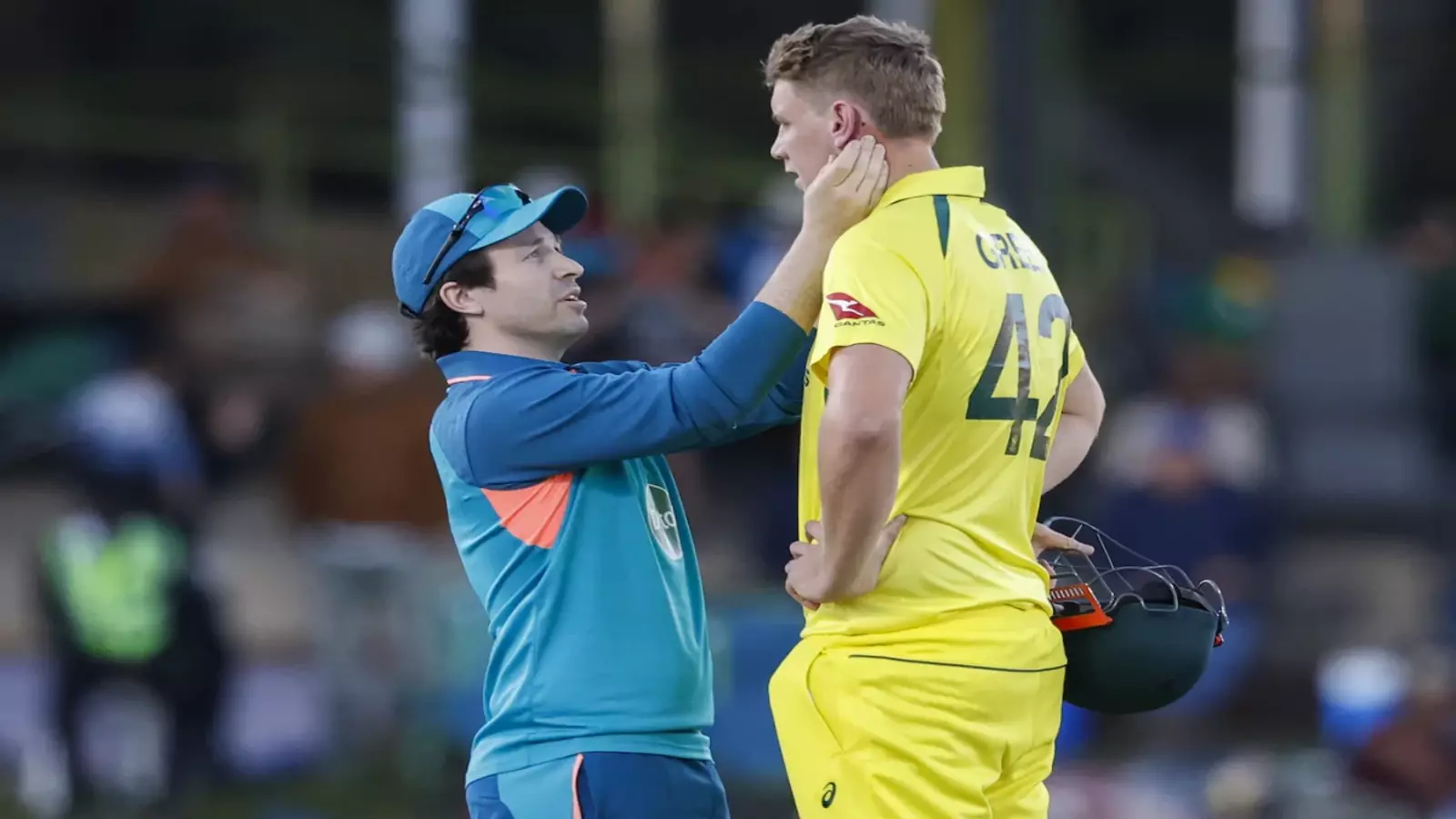
Cricket and its laws can be complex at times, given the number of incidents involved during the course of the game.

Cricket and its laws can be complex at times, given the number of incidents involved during the course of the game. Some rules might sound unfair or biased for a team, but they are all there to provide balance and flow to the game. The concussion replacement rule is one of them.
According to the ICC playing conditions, “If a player sustains a concussion or suspected concussion as a result of a head or neck injury during the course of the relevant match, a Concussion Replacement may be permitted.”
This rule has come into effect because such injuries can be dangerous and might lead to severe consequences if aggravated by continuing with the same player. So, there is a law to bring another like-to-like replacement for the injured player within the same game. Remember, a replacement is only provided if there is a concussion case.
Last night, this rule was in use again when Cameron Green suffered a nasty bouncer off Kagiso Rabada during the sixth over of the second innings on a pitch with variable bounce. The ball hit straight behind the ear, and a droplet of blood and swelling was visible after this blow. After being attended by the team physio, Cameron Green walked back off the physio’s advice immediately.
Australia later announced a concussion replacement for Green, as Marnus Labuschagne replaced him for the remainder of the game. Labuschagne went on to play a match-winning knock for his team out of nowhere and provided an early lead to Australia in the series.
Now, according to the rules, the substitute replacement was spot on. However, it was unfair for South Africa, as this replacement rule provided Australia with an additional player in Labuschangne. Cameron Green had already bowled five overs in the first innings, where he also picked up a prize wicket of Aiden Markram.
And, when he sustained a concussion, the rule allowed Marnus Labuschagne to come in the XI for him. Technically, Australia played with 12 players in the game.
Suppose the players reversed, and Marnus sustained a similar blow while batting in the first innings; Cameron Green would have been allowed to play as an all-rounder because Marnus can also roll his arm and bowl a few overs. But Green is a much better bowler, and Australia would have got an unfair advantage.
According to the ICC playing conditions, “In assessing whether the nominated Concussion Replacement should be considered a like-for-like player, the ICC Match Referee should consider the likely role the concussed player would have played during the remainder of the match, and the normal role that would be performed by the nominated Concussion Replacement.”
In the last match, Labuschagne only batted, but if he had replaced Green in the first innings, the law would have allowed him to bowl as well. This concussion rule will always be a disadvantage for one team.
While the rule is unfair, ICC can’t do much about it. No one knows when and how a player will suffer a concussion blow, so the law is to bring in a like-for-like replacement who would do a similar job.
No team does it deliberately to get an unfair advantage, but these things are uncontrollable. Some terrible incidents in the past have compelled the ICC to have a soft corner for such cases, and the rule was instilled to prevent those incidents from happening again.
In some cases, the symptoms might not surface immediately. If there is a concussion case, but there is no replacement allotted, the teams might risk the injured player again in the same game. Hence, this rule while aiding the team whose player got injured is important. The replaced player is not allowed to be part of the game anymore to create some impartiality.
Remember when Yuzvendra Chahal replaced Ravindra Jadeja, who had already batted in the first innings against Australia in Canberra in 2020? Chahal went on to deliver a match-winning spell of 3/25 to win the game for India. Australian coach, Justin Langer, couldn’t control his anger and vented on the match officials then.
Australia were on the receiving end then, but the rule was fair. Australia have benefitted from this law, and it is legit now, too. The teams suffering the injury will never question the law.
It can be challenging to come up with a solution that satisfies all parties involved when it comes to changing laws and regulations. One thing is sure – the rule is fine for now, and it should not be scrapped. Fair or unfair, a law is a law.
For more updates, follow CricXtasy on Facebook, Instagram, Twitter, and YouTube.